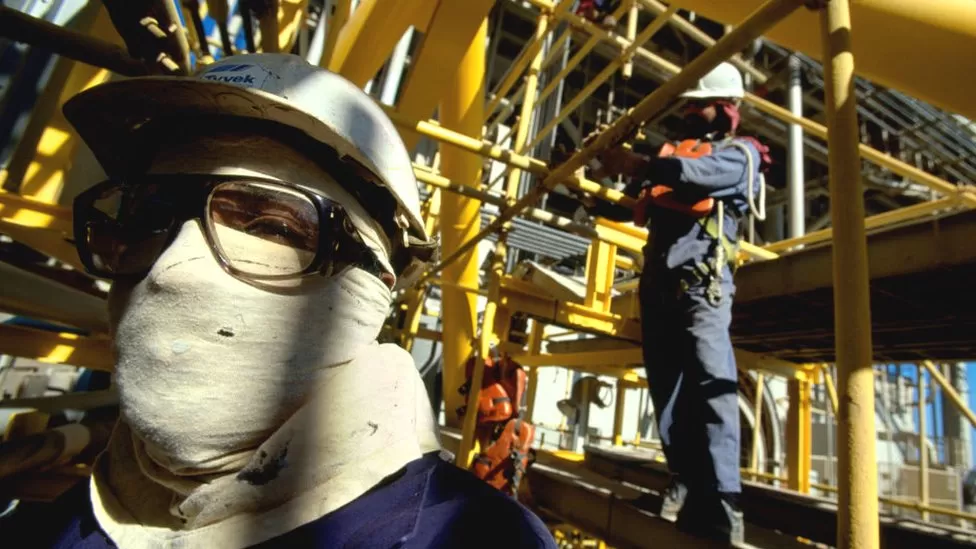Oil prices have jumped on concerns that the situation in Israel and Gaza could disrupt output from the Middle East.
Brent crude, the international benchmark, climbed by $2.25 a barrel to $86.83, while US prices also rose.
Israel and Palestinian territories are not oil producers but the Middle Eastern region accounts for almost a third of global supply.
Hamas’s assault on Israel was the biggest escalation between the two sides for decades.
Western nations condemned the attacks. A spokesperson for Hamas, the Palestinian militant group, told the BBC that the group had direct backing for the move from Iran – one of the world’s largest oil producers.
Iran denied involvement in the assault at a UN Security Council meeting in New York on Sunday, Reuters reported. But Iranian President Ebrahim Raisi has expressed support for the attack.
On Monday, Israel ordered US oil giant Chevron to pause production at the Tamar natural gas field off the country’s northern coast, which is within range of rocket fire from the Gaza Strip.
The country’s energy ministry, which has closed the field during previous periods of unrest, said there was enough fuel from other sources to meet Israel’s energy needs.
Israel’s largest offshore gas field, Leviathan, continues to operate as normal, Chevron said.
Energy analyst Saul Kavonic told the BBC that global oil prices have risen “due to the prospect of a wider conflagration that could spread to nearby major oil-producing nations such as Iran and Saudi Arabia”.

On Monday morning, the price of West Texas Intermediate crude, the US benchmark, was up $2.50 a barrel at $85.30.
“If the conflict envelops Iran, which has been accused of supporting the Hamas attacks, up to 3% of global oil supply is at risk,” Mr Kavonic added.
Caroline Bain, chief commodities economist at Capital Economics, told the BBC’s Today programme that Iran had been increasing oil production over the course of this year despite US sanctions.
“The US seems to have turned a blind eye to a steady increase in Iranian production, that… is going to be more difficult for the US to ignore going forward from here,” she said.
Overall, Ms Bain said Capital Economics expected demand for oil to exceed supply in the final three months of the year and “that should support higher prices”.
Mr Kavonic said that about a fifth of global supply would be “held hostage” if passage through the Strait of Hormuz, a vital oil trading route is disrupted.
The Strait of Hormuz is crucial for the main oil exporters in the Gulf region, whose economies are built around oil and gas production.





































